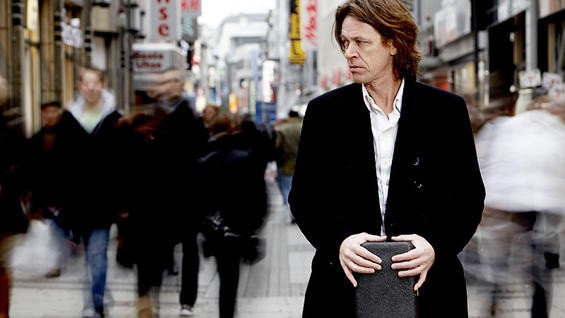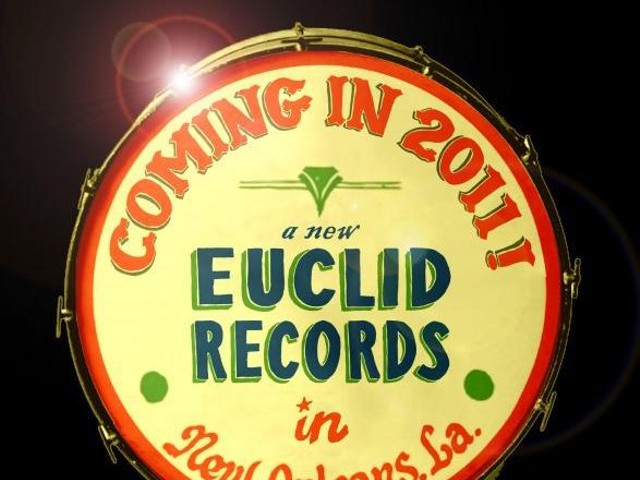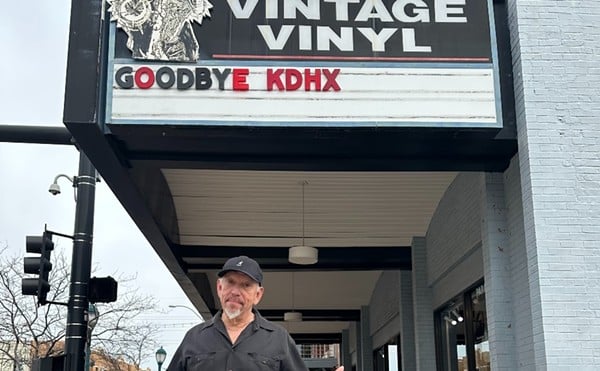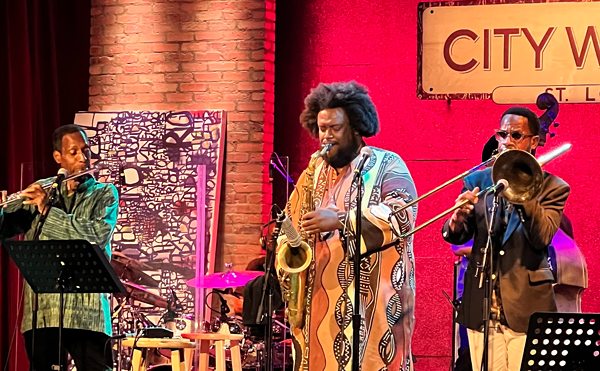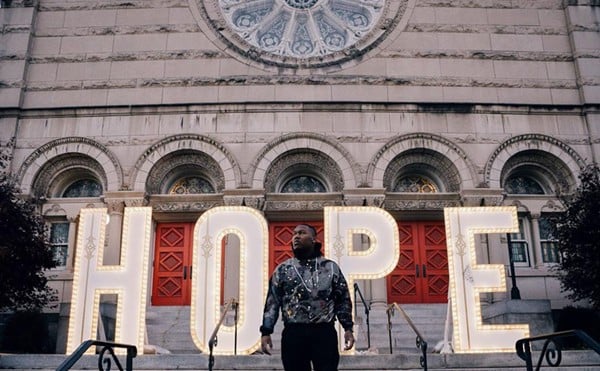Next Wednesday, June 23, Sting will be bringing his Symphonicities tour to the Verizon Wireless Amphitheater. That's a night featuring nothing but solo songs (and a few Police classics) rendered by a full orchestra. Tickets of varying prices are still available. In this week's paper, Jeff Giles chatted with Dominic Miller, Sting's long-time guitarist, about the tour and his own solo work. Chatter about the latter topic is below. Enjoy.
Jeff Giles: Let's talk about your new album, November, which is obviously a bit of a departure for you. Dominic Miller: Yeah, absolutely.
You decided to make the electric guitar the focus of these recordings, rather than the nylon string acoustic, which is what you've been known for. At what point did you decide to go that direction? It was a very conscious decision. I've done so many albums with the nylon that I felt like I'd taken it as far as I could, for now. I'm doing everything kind of in reverse to Sting, because I've been doing that kind of contemplative stuff for years as a solo artist, and now I'm going a bit more meaty. It was just a challenge for myself, to play instrumental music on an electric guitar, which is very difficult to do without getting heavily into fusion. And maybe it sounds a bit like that on this album, but my influences for these songs were from the '70s and '80s. Return to Forever -- a lot of funk music, acts like the Brothers Johnson, things like that. I wanted to stay away from a guitar hero-type album -- I wanted themes. My influences are songwriters. I like the forms of songs, and I just wanted to make an electric guitar instrumental album without being embarrassing.
It's hard, because it's been done before me by one particular artist that no one's come close to, and that's Jeff Beck. He set the standard for this type of album with some of his earlier work, like Blow by Blow or Wired. That's the sort of template. I wanted to go into that arena. And obviously I'm way behind Jeff Beck, but I feel like I'm catching up.
This decision must have had a pretty profound impact on the songwriting process for you. Oh, absolutely. When I understood what the project was, it was quite easy to write it. You know, it was just like fitting the theme, and then I wrote the tunes for that character. I knew what I wanted, I knew how I wanted it to sound, I knew who I wanted to produce it, and the kind of sound I wanted. So the writing process was quick -- I think I wrote it in a three-week period, when I had time off from Sting. I just went for it, and went into the studio for a five-day recording session, then spent four or five days mixing and manipulating. I'm pretty happy with it. I mean, I think I could have done better, but I'm certainly going to try another one like this again.
I like it -- I like doing electric guitar now. It's very difficult to be really expressive on electric guitar for me, because I'm so used to the acoustic. As an accompanist, it's fine, no problem. But as a lead instrument, it's a challenge.
You mentioned the fact that you did this when you had time off, and I want to go back to that, because I think a lot of people assume that professional musicians write and record whenever they want to. But you do have a "day job" -- and even though it's a musical one, you still have to schedule your solo excursions around it. How does this affect your creative process? It's a difficult problem, but it's a very luxurious problem that I have. Because I do have an amazing opportunity to work with Sting, and I'm taking it, because I love the job, and I know how to do it. I know how to be the sideman in that particular job, probably better than any other. And it allows me an incredible amount of freedom as a solo artist, to just go for it without worrying about what anyone might think. So really, my solo work is sort of like a protest against the norm of life. I'm just doing it for the love -- it's unconditional, and I have total solidarity with my approach. I don't have to satisfy any record company's needs or expectations, and thankfully, I have a group of fans who follow me, which is just a blessing. I have a group of men, we travel jazz-style around Eastern Europe in a bumpy van, and I've got my mates and I'm having the time of my life.
And the beauty of the whole thing is that when I jump into the Sting bubble, so to speak, I really, really appreciate it. The comfort and the aesthetic of it, you know?
What drew you to the nylon to begin with? Well, I grew up in South America, so it was just kind of normal. Everyone has a nylon string acoustic lying around the house there, the same way everyone has a steel string in North America or Europe. Everyone can play "Yesterday" in Europe and North America -- in South America, everyone plays bossa nova. Badly, but still. So that's how I started off, you know, it's just a normal sound for me, and the nylon string, up until now, has been the best way for me to express myself. I think the Les Paul is the best way right now.
I read in another interview that you grew up listening to Hendrix, and it seemed like that might have been an unusual evolution, going from listening to all that amplification to focusing on such an intimate instrument. The thing about the nylon -- or a steel string, really -- is that I think it's kind of like a small orchestra. The electric guitar is good for playing with others; it doesn't really work as a solo instrument. It's all self-contained, a guitar. You can't carry a piano around, but you can carry a guitar around -- put it in the back of your truck and play it anywhere you like. Funnily enough, on this tour, I'm not even touching my nylon string guitar -- except on stage, of course. I'm traveling with my steel string -- I'm trying to learn how to play it again and make it meaningful, how to get something out of it. It's like cross-training, you know.
I love the guitar. It's a traveling instrument. In the old days of Martin guitars, which came out in the '20s and '30s, that was the whole thing, you know -- blues guitar, the traveling man with the guitar. That's just the ultimate job. That's what I should be doing.
Maybe your next record should be all slide guitar. You know what? I love a bit of slide, man. Rory Gallagher, respect. He's the man.

